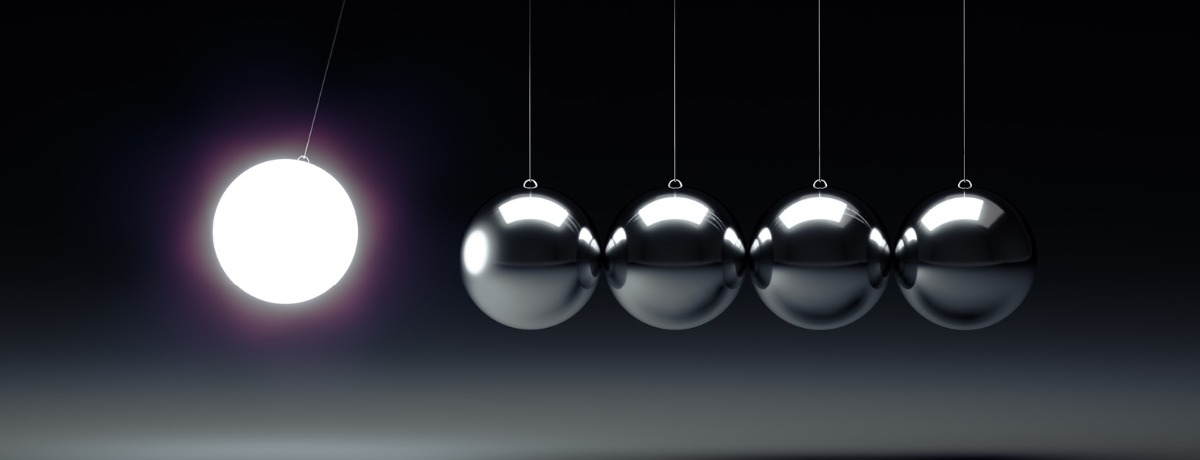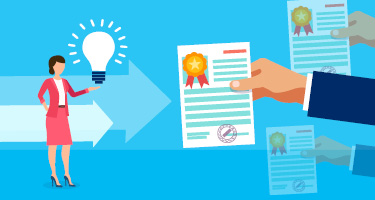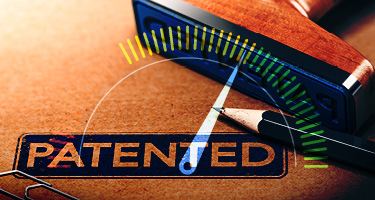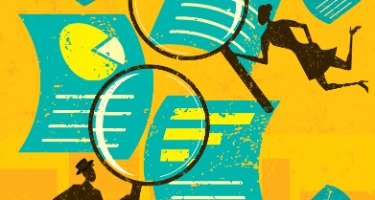Innovation occurs when there are problems to be solved. For example, cars may be improved because they are not fuel efficient. Of course, making cars more fuel efficient is not easy; it requires energy, which in this sense is the time and hard work involved in developing innovative solutions. Time and hard work are not free, nor should they be free. This is why cars that are more fuel-efficient cost more money to make and more money to buy.
So, how does this relate to the patent process? Just as a machine or other invention can be physically stolen, so can the energy that goes into developing it. To protect against such theft, Congress holds the power “to promote the progress of science and useful arts, by securing for limited times to authors and inventors the exclusive right to their respective writings and discoveries.”
A patent is a specific property right created from this clause of the U.S. Constitution that protects the energy expended to create a new invention. In the example above, an inventor must use energy to invent a new mechanism to improve fuel economy in cars. Without patents, the inventor and the business world in which the inventor competes will both be able to build cars with the new mechanism. All else being the same, it is the inventor alone who is left with less total energy than before the new mechanism was invented. Because systems that use energy need to receive equal energy in order to continue functioning properly, the inventor must receive just compensation if he is going to be motivated to ever invent again. Acquiring a patent on an invention gives the inventor the exclusive right to make use of the invention for a limited time in exchange for disclosing the invention to society. The exclusive right compensates the inventor for the energy used to invent. Because the right is limited to a fixed period of time, and because society is provided with the disclosure of the invention, society will be able to make use of the invention without restriction once the inventor’s period of exclusivity expires. As a result, the patent benefits society by enabling innovation to persevere.
Distribution and Innovation
On the other hand, certain instances may exist where a free distribution of technology, rather than via a mechanism such as a patent, could result in the flourishing of innovation. For example, in the early 1970s, AT&T made decisions on how to provide those outside of its organization with its Uniplexed Information and Computing Service (“Unix”) operating systems. Specifically, AT&T decided to provide Unix to a number of researchers at no cost, though without permission to redistribute or to distribute modified versions. Arguably, this allowed users to collaborate with one another and improve upon many different aspects of the initial Unix operating systems. Many assert that by using these unorthodox policies, AT&T may have enabled innovation to persevere, and by increasing more widespread adoption of the Unix operating systems, also made a shrewd business move.
More typically, however, patents are seen as encouraging innovation. Elihu Thomson, who was listed as an inventor on hundreds of patents in the late 19th and early 20th centuries, and who founded a number of major electrical companies, summed up the more accepted view on the importance of patents. He said, “Shall an invention be patented or donated to the public freely? I have known some well-meaning scientific men to look askance at the patenting of inventions, as if it were a rather selfish and ungracious act, essentially unworthy. The answer is very simple. Publish an invention freely, and it will almost surely die from lack of interest in its development. It will not be developed and the world will not be benefited. Patent it, and if valuable, it will be taken up and developed into a business.”
---------------
An experienced patent attorney, John P. Powers has a solid track record of success with technology companies in acquiring patent rights for their inventions and, when needed, provides litigation support. His practice at Eckert Seamans Cherin & Mellott covers a wide variety of technologies including electrical switching apparatuses, medical devices such as respiratory therapy devices and therapeutic ultrasound technology, pharmaceutical packaging, machine tooling and related systems, and toys. Powers earned his B.S. in mechanical engineering from the University of Michigan and his J.D. from the University of Toledo College of Law.



















